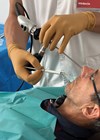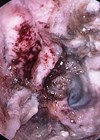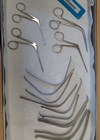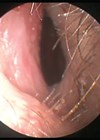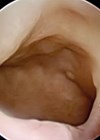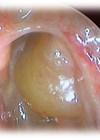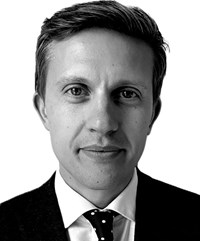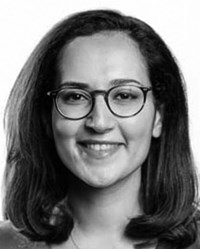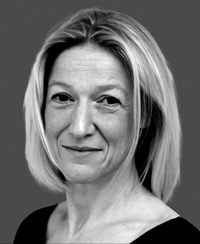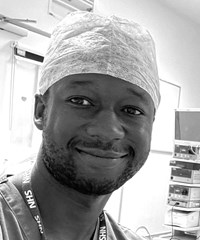ENT features
The MACRO Trial: defining best management of chronic rhinosinusitis
A major UK trial in The Lancet finds ESS provides greater symptom relief than long-term macrolides for adults with CRS, supporting earlier surgery and fewer antibiotics. The MACRO Programme was established in 2016 when the UK National Institute of Health...
Management of olfactory dysfunction
An evidence-based update on olfactory dysfunction: who to image, how to test and what works – OT, CRS surgery, biologics and PRP. Olfactory dysfunction (OD) is highly prevalent, affecting more than 20% of the adult population with a clear age-related...
A brief overview on chronic facial pain in rhinology practice
Chronic facial pain is a common yet complex issue in rhinology, often neurologic in origin and frequently misattributed to sinus disease. Facial pain is a very common complaint in the rhinology clinic. In a community-based ENT practice where patient symptoms...
First UK Genio Nyxoah bilateral hypoglossal nerve stimulator implant for obstructive sleep apnoea
Obstructive sleep apnoea remains a very challenging condition to treat, but more options are becoming available. An estimated eight million adults in the UK suffer from obstructive sleep apnoea (OSA) and experience symptoms of troublesome snoring, daytime sleepiness and witnessed...
Advanced in-office awake rhinology
In-office awake rhinology transforms sinonasal care, offering safe, cost-effective, minimally invasive procedures with rapid recovery and high patient satisfaction. In recent years, the landscape of otolaryngological surgery has undergone a remarkable transformation with the advent of in-office awake surgical procedures....
Cocaine-induced ENT pseudo-GPA (CIEpGPA): an underdiagnosed entity
Cocaine-induced ENT pseudo-GPA is increasingly seen in our ENT clinics. The authors of a new ENT UK guideline offer a concise overview for day-to-day recognition and management. Use of cocaine has steadily increased in Europe since 2010 and now represents...
Sustainability guidelines to reduce single-use items in ENT outpatients
ENT surgery generates significant waste, with single-use instruments and packaging as key contributors. This article outlines recommendations on sustainable practice that can be adopted into ENT departments. Climate change is one of the greatest threats to human health in the...
What has NAIROS taught us about septoplasty?
Septoplasty is a commonly performed procedure worldwide for nasal obstruction associated with a deviated nasal septum. In the UK, with long waiting lists for septoplasty, there is a large and unexplained variation in the incidence of this procedure between individual...
Targeting the microbiome in chronic rhinosinusitis
Researchers at St Paul’s Sinus Centre and UBC in Vancouver are testing a novel treatment for CRS: transferring mucus from a healthy donor into a patient’s sinuses. Chronic rhinosinusitis (CRS) is one of the most common diseases managed by otolaryngologists...
OBITUARY: Peter Valentin Tomazic (1982-2024)
By Wytske Fokkens & Claire Hopkins It is with shock and profound sadness that we announce the passing of our beloved friend, Valentin, who left us on June 3rd. Valentin was a bright, kind, and loving individual who touched the...
Endotypes in chronic rhinosinusitis: clinical relevance
Identifying endotypes enables personalised therapies that target specific pathophysiological processes, potentially resulting in better treatment outcomes for patients. The contemporary model of chronic rhinosinusitis (CRS) pathogenesis revolving around endotype, in combination with an expanding toolbox of diagnostics and therapeutics, enables...
St Æbbe the Younger of Coldingham, patron saint of the nose
Stories of the saints are often rather dark and unpleasant – and this is certainly the case with St Æbbe, as we hear from our roving historian, John Riddington Young. In two previous articles, we have discovered the fascinating stories...






